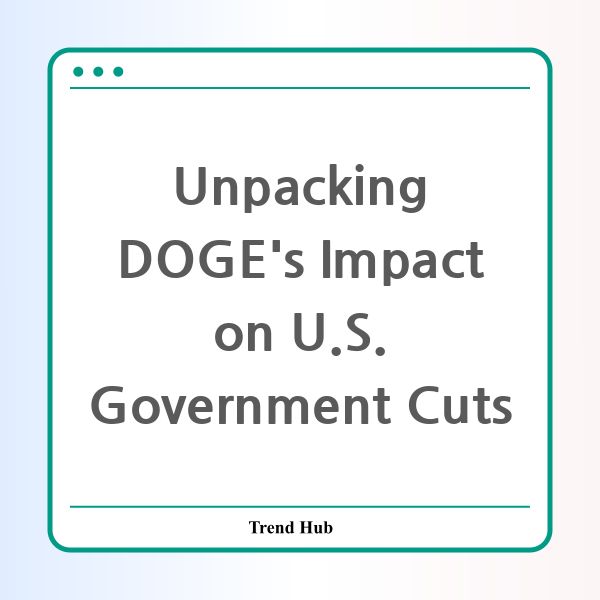* This website participates in the Amazon Affiliate Program and earns from qualifying purchases.

Have you heard about the recent radical changes proposed by a new initiative called DOGE? Established under the leadership of Elon Musk and in direct collaboration with the Trump administration, the Department of Government Efficiency (DOGE) is shaking up federal spending in a significant way. These proposed cuts aim to streamline government operations and reduce waste, but they come with a myriad of potential risks that have sparked heated debate.
Founded by Donald Trump, DOGE proposes a series of budget cuts to various federal agencies with the goal of saving taxpayer money and eliminating bureaucratic red tape. At the forefront of this initiative is a team primarily comprised of young college students who are navigating the complex waters of government efficiency without any formal legal power. With Musk at the helm announcing positions with the caveat of zero salary and extensive work hours, the unconventional nature of this initiative raises numerous questions about its sustainability and effectiveness.
So, what exactly is DOGE targeting? Here’s a breakdown of the significant agencies and services that are currently at risk:
- Department of Education: This department may see dramatic downsizing or even outright elimination, which could jeopardize crucial educational services for millions of American students.
- USAID: The initiative suggests dismantling the U.S. Agency for International Development and reallocating its responsibilities to the State Department, a move that critics argue could harm international relationships.
- NOAA: The National Oceanic and Atmospheric Administration faces potential budget cuts that threaten vital weather forecasting services, crucial for disaster preparedness.
According to initial assessments, DOGE claims to identify around $1 billion in savings daily through canceled contracts, particularly those associated with Diversity, Equity, and Inclusion (DEI) initiatives across various government agencies. However, the effectiveness of these cuts is under scrutiny, with experts warning of potential disruptions to essential services like tax refunds and Social Security benefits.
A significant aspect of these cuts is the enforced return of federal workers to the office alongside a hiring freeze. While these changes aim to economize salaries, they may also severely limit the capacity of federal agencies to operate effectively, raising concerns about service delays across the board.
Critics of DOGE, including financial experts, have voiced concern over the long-term implications of these drastic cuts. Many argue that while cost-cutting can provide some immediate financial relief, the lack of comprehensive analysis could lead to significant risks for national security and essential government operations.
A financial expert remarked, "These cuts pose significant risks to long-term governmental and economic stability. The current approach lacks transparent methodology and could destabilize crucial agencies."
The short-term effects of DOGE's proposals are anticipated to create confusion and disruption. The reality is that unless these recommendations are codified into law, they may be overturned by successive administrations. Moreover, the power dynamic raises questions about credibility on the global stage—how does it reflect when a private entrepreneur appears to have more influence than elected officials?
As it stands, DOGE is expected to function as a temporary organization until July 4, 2026. Through this analysis, it’s clear that the path forward is fraught with challenges as government reforms unfold. What do you think about these aggressive cuts? Are they justified to enhance efficiency, or do they threaten services we cannot afford to lose?
* This website participates in the Amazon Affiliate Program and earns from qualifying purchases.